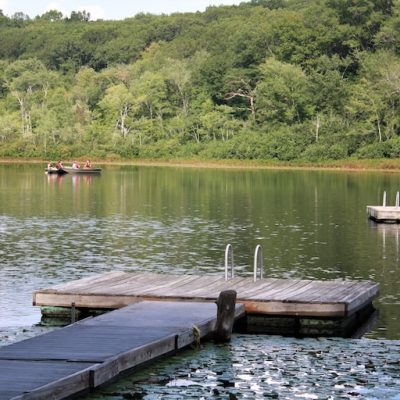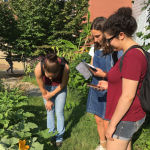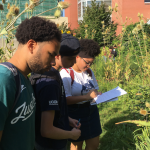Position Summary: The Ecosystems Center of the Marine Biological Laboratory is seeking applicants for Research Experience for Undergraduate (REU) positions. REU positions are available to U.S. citizens or Permanent Residents only who are currently enrolled as undergraduates at U.S. colleges or universities (no graduating seniors). Successful candidates will participate in field research on either terrestrial or aquatic ecosystems in the Toolik Lake Research Natural Area on the North Slope of Alaska.
Additional Information: In addition to gaining experience by assisting on a variety of project activities, REU students typically engage in a small independent project that is linked to larger studies of lakes, streams, tundra or land-water interactions. REU participants are expected to collect and analyze data and to produce a poster describing their project near the end of the field season.
We anticipate funding for support of at least two REU positions during the 2018 field season, both in association with the Arctic LTER project (http://ecosystems.mbl.edu/ARC/).
Candidates for these jobs should be available to live at Toolik Field Station for 8-10 weeks during June, July and August. In addition to a stipend, travel to Toolik Field Station is paid for by grant funds as well as the cost of room and board at the station.
Basic Qualifications: Applicants should have completed basic coursework in biology, chemistry and ideally ecology or ecosystem studies. Attention to detail and a desire to learn new laboratory and field techniques are essential.
Physical Requirements: Applicants should be in good health, capable of rigorous outdoor activity, and prepared to live in a field camp where cooperation with others is essential, personal privacy is limited, and living accommodations are spare and simple.
Special Instructions to Applicants: The following are required documents:
1) Cover Letter
2) Resume/CV
3) References – Names and contact information of three persons who may be asked to provide letters of reference.
4) Unofficial Transcripts.
NOTE: Please do not ask referees to send unsolicited letters; these will be requested by us for final candidates only.
APPLY ONLINE: http://bit.ly/2F3osdn
The Marine Biological Laboratory is an
Affirmative Action / Equal Opportunity / Disabled / Veterans Employer.
Molly Kelleher
Human Resources Assistant
Marine Biological Laboratory
7 MBL Street
Woods Hole, MA 02543
508-289-7422
humanres@mbl.edu
Eric T. Schultz
Professor, Department of Ecology and Evolutionary Biology
Coordinator, Joint BS-MS Degree in Biodiversity and Conservation Biology
Director, Vertebrate Biodiversity Collections
Chair, General Education Oversight Committee
University of Connecticut
Storrs, CT 06269-3043
eric.schultz@uconn.edu
860.486.4692


